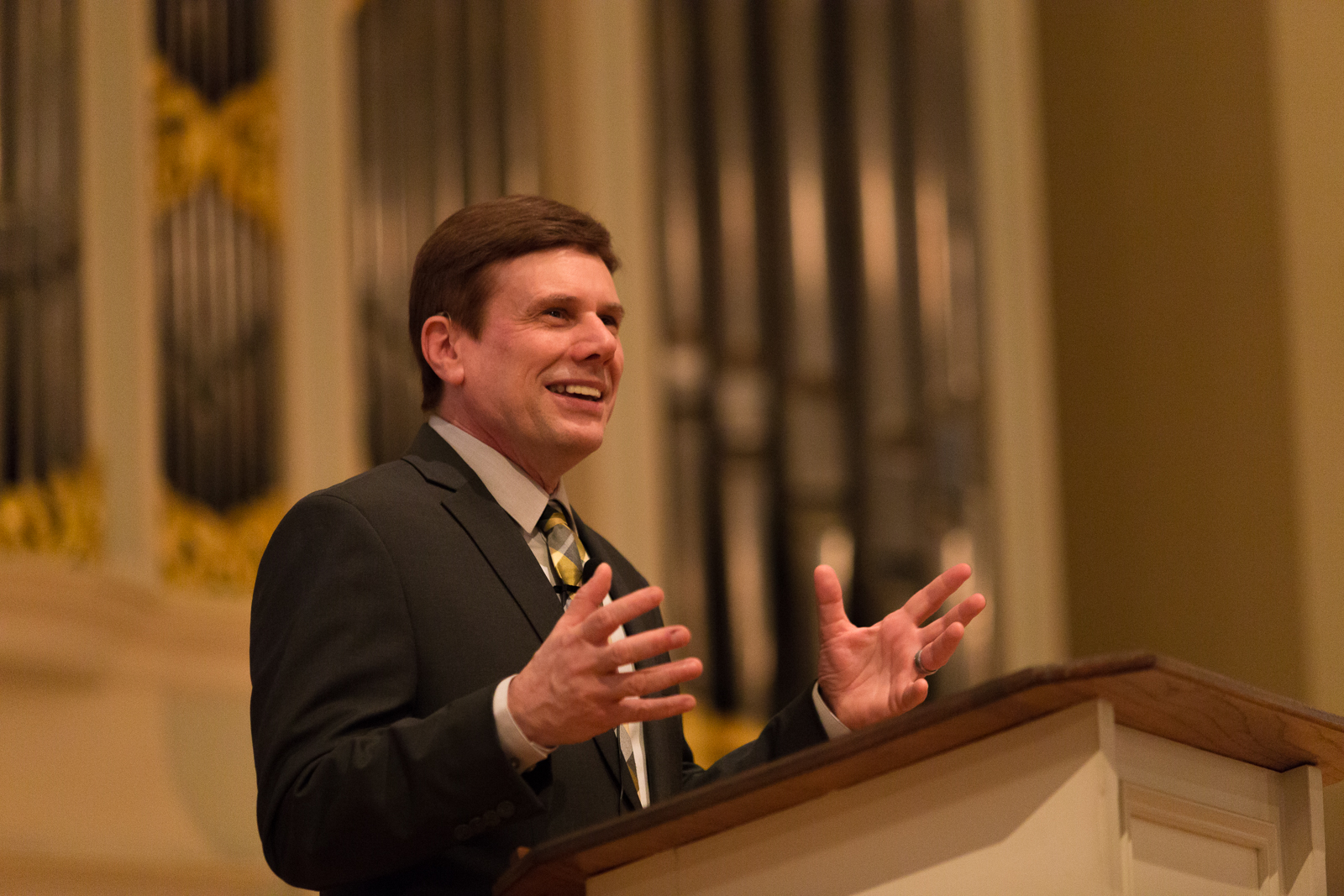
In today’s world, we find ourselves surrounded by “fake news” and often lack the skills to navigate to the truth.
On April 11, Snopes.com founder David Mikkelson visited Puget Sound to lecture on this challenge, in an event put on by the Center for Intercultural and Civic Engagement (CICE) in partnership with the Associated Students of the University of Puget Sound (ASUPS).
The event was open to university community members as well as open to the public and saw a large turnout from members of the surrounding Tacoma area.
Snopes.com is a fact-checking website featuring original investigative reporting. The site was first founded in 1994, a business that started out as a hobby but now garners more than 32 million website visits each month.
The site has gradually evolved over the past 25 years, becoming what Mikkelson describes as “a place for people to come and ask, ‘Is this true?’”
Fact-checking services such as Snopes.com have become more necessary recently as the standards of what is considered news has evolved from a one-hour nightly spotlight to a 24/7 exposure, making the information relayed more susceptible than ever to manipulation.
The evening began with a presentation by Mikkelson, who discussed the origins of Snopes.com, the rising popularity of “junk news” and social media platforms’ lack of monitoring fake news.
Content published on Snopes.com is dependent on what users are curious about.
“We write about what most people are asking,” Mikkelson said, “and we hope our audience is able to discern between the frivolous and the important.”
Mikkelson spoke on the rise of fake news surrounding the 2016 election, which he attributed to people “discovering how to manipulate political discourse.”
Suddenly Snopes.com was not only debunking Bigfoot myths but now also fact-checking intense rumors about presidential candidates. Now, with a president who consistently perpetuates fake news culture and an upcoming election in 2020, Snopes.com finds itself busier than ever.
Puget Sound Professor Seth Weinberger joined the stage to sit down with Mikkelson and interview him about his work in fact-checking politics in the age of Trump.
Among Weinberger’s many questions was the inquiry of how fake news has been able to grow and become the threat that it is today. Mikkelson explained that the phenomenon is due both in part to the evolution of the internet and also to the competitive nature of media.
Every entertainment company, on any platform, is competing for people’s attention. We, as humans, are willing to spend less time on a single article, possessing an attitude that Mikkelson described as, “I just want to know if this is true.”
As a result, people look to headlines and snippets for their information, not reading the entire story.
“Social media gives you bytes of things. … We don’t consume the whole meal anymore,” Mikkelson said.
After discussing the need for a fact-checking system, Mikkelson went on to address the challenge of presenting such a site as objective. He began by highlighting that “traditional journalism understands that the job is to report, not interpret.”
Networks have been taken over by opinionated talking heads, with only a small percentage of airtime dedicated to actually reporting news.
Mikkelson also discussed the hiring mentality with unbiased sites such as Snopes.com, insisting that “the mentality of hiring bias to counteract bias does not work; we simply hire the best.”
Weinberger’s final question asked Mikkelson how he is able to ensure accuracy with Snopes.com.
A larger component is the lack of publishing pressure. Each network and newspaper is pressured to get the breaking story out first, which inevitably leads to mistakes. As a site that primarily responds to these stories, there is reduced pressure and more of a focus on finding credible sources to than confirm or reject the rumor in question.
Mikkelson concluded his talk by stressing the need for people to become educated in media literacy and burst out of their “filter bubble” by seeking information from multiple credible sources rather than doing the disservice of confining themselves to one news station or newspaper.
There will always be people who, when confronted with the truth, entrench themselves within their incorrect views even further, but Mikkelson hopes social media platforms and entertainment sources will rise to the occasion and do their part to stop the spread of fake news.
